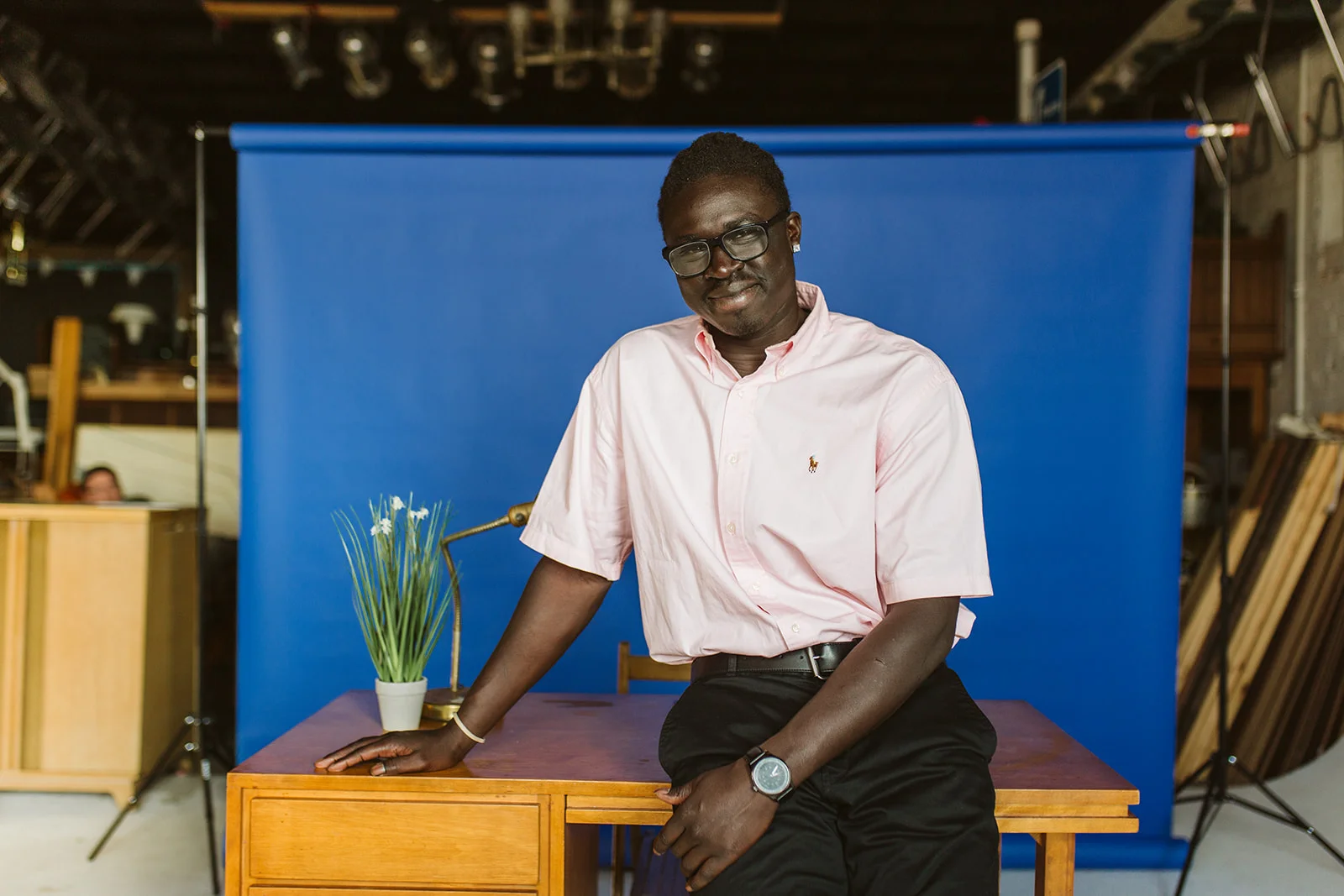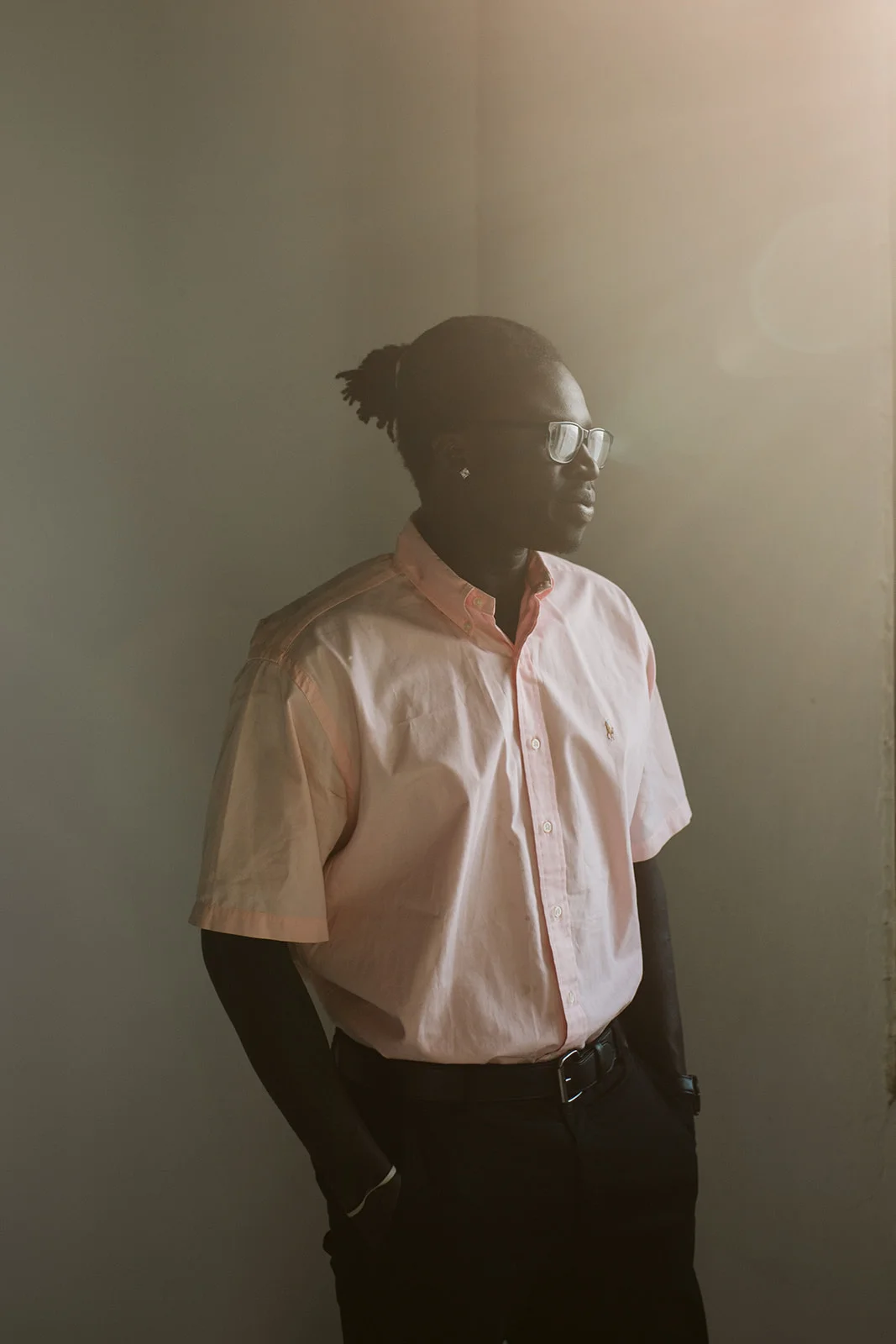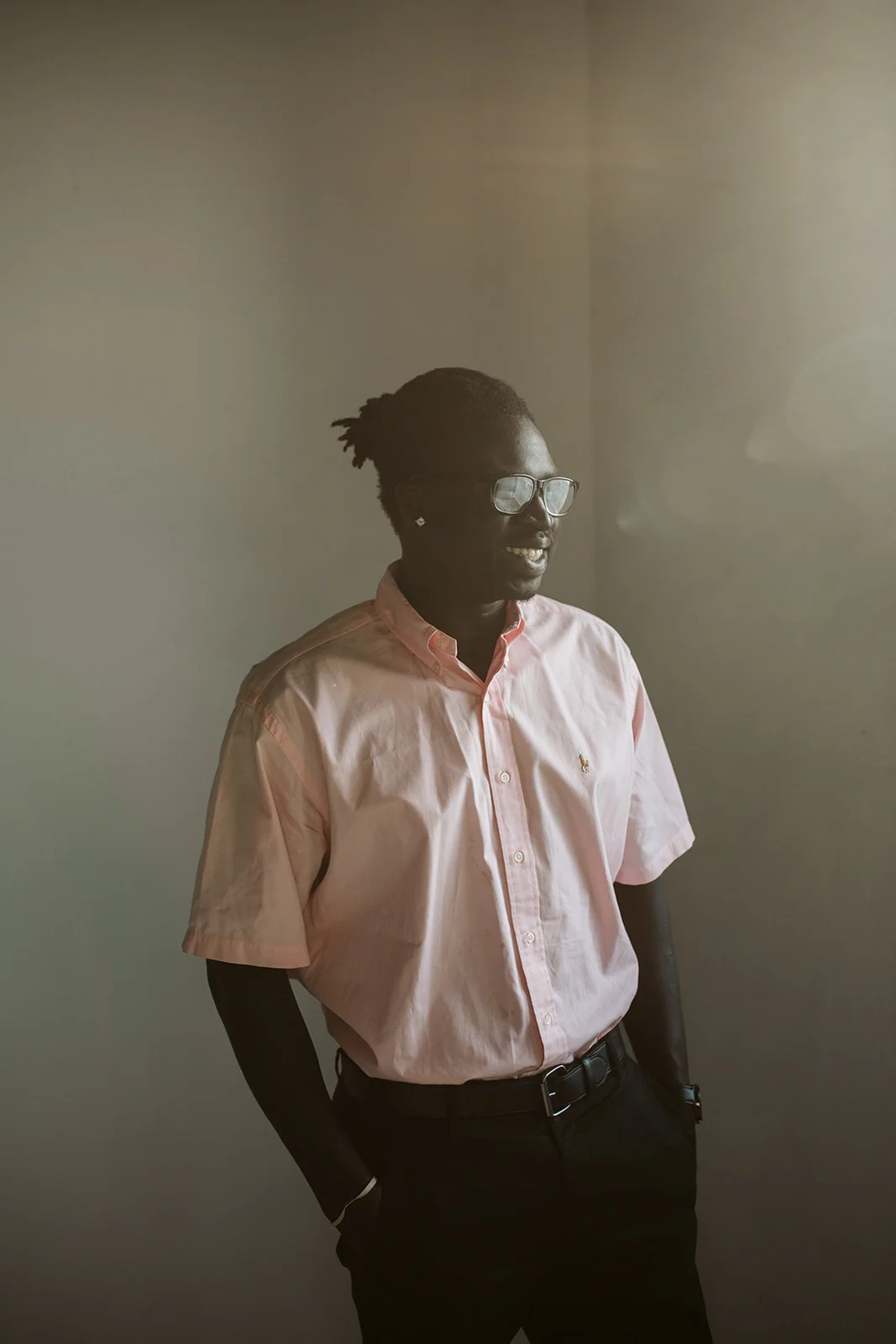Interview by: Kamrin Baker
Photos by: Kimberly Dovi
November 12, 2018
Keet Wiyual
Keet Wiyual is a program coordinator with RISE and aims to bring positivity into the lives of the members of the Omaha community.
Issue 1 : It is the heart that drives us, beating away to forge and mold each of us as our own magnificent people. This issue is about that.
What has your journey with RISE been like?
Alright, well, I am the program coordinator—I got this job because, when I was—and still am-- incarcerated—I’m at the work release center. They offered me the job because I took the program [RISE] at Nebraska State Penitentiary (NSP), and they liked that I was intelligent but that I had a great personality, as well. They thought that I would fit for this position, and gave me the job when it started getting cold.
What does your average day look like at RISE? How does your work impact others?
Average day? First off, in the morning, I get here as early as possible (probably about 6:00), get on the computer, check emails, and see if my coworkers have anything they need me to do, and I get that work done. They teach me different programs and stuff to do. I’m still in the schooling aspect and they’re still teaching me. After work, I go back to the center, read, or do whatever I gotta do—watch TV-- until the next day comes.
What does RISE do everyday? What do you do everyday?
What I do now is pretty much getting all of the information from all of the Builders in the facilities and making sure no files are lost because everything written through paper in the facilities, so I’m making sure data goes through computers and make sure they have profiles and connect with loved ones on the outside world and make sure they’re well-informed with everything going on with the Builders.
RISE? They’re doing a lot more than me. They’re doing some stuff I’ve never seen before. All of my coworkers have different fields and are all over the place. They impact others to succeed. Like, from my experience coming from the facility, they were keeping track of me at my facility, making sure I had a place to go when I have to parole, make sure I have a job, and I’m on the right track to become successful; character development, there’s a lot of stuff that they taught me that I feel they can teach everyone. When I was in the facility with the program with a lot of other people, they were having the same impact that I was having. There are a lot of bad people in there, but they’re not bad to the core to where they don’t come back and see the light. Like, they [RISE] showed a lot of people the light.
Everyone can change. Everyone deserves a second chance. Even though you’ve made mistakes, you’re not known by your mistakes.
What was the most important thing you learned, and what is the RISE training process like?
Character development. I feel there’s a lot of people I can trust who are trying to help me and that they have my back. They have, well from my cohort, there are different curriculums that they’re doing currently. I took this course a long time ago; we were mostly watching videos and having events. There are activities where we get deep and emotional. It doesn’t necessarily go out into the facility, and it stays in a trust in the group, which I thought was very important.
How would you describe the people closest to you in Omaha?
I feel that they’re a lot more positive—people are actually exuding the positivity into everything they do—every encounter I have with them. I always stay positive, so if I feel like that reflects off other people, I hope they stay as positive and happy as possible. I like to goof around a lot.
How does your work stand out in Omaha?
A lot of people don’t necessarily go into the facilities and try to make good out of the bad that’s coming out of there. They’re scared to go into facilities. That is really deep for people to see one of the worst things that could happen.
A lot of people go into prison because of poverty or other things they do because they didn’t have that unconditional love that not too many people have—they [RISE] show that and shine that into facilities.
What drives you to do what you do?
I actually like to help people now. From my childhood, I never had that mother/son or father/son unconditional love. I never knew how to go about that besides being angry, so when I made my mistake, and when I took the program in RISE, they showed me that unconditional love. I thought that was important for people to become successful in the future and let go of their past.
Where does the passion and love for your work come from?
I like being a people-person. They’re showing me a whole different world, like it’s only stuff I see in movies, they take me to dinners and board meetings. It’s funny. It’s nice.
How have you learned to deal with heartbreak (in any forms: relationships, personal struggles, rejection in your career, etc.)?
Now, I pick up a hobby. Some creative activity—for me, personally, I have to go play a sport like basketball to get my mind off of everything. And meditation, too. I started reading books, and this guy starting teaching me about Buddhist meditations. It was pretty interesting, as I started meditating longer and longer, I’m not sure if it’s real or not, but I start to get in that groove.
What’s your support system like now?
I established the bond within me and my family—at first they were looking at me like it was my fault for being incarcerated—but now I own those mistakes and I want to establish a better bond with them. I feel like we’re a lot closer now. They come visit me whenever I want them to come visit, they come pick me up, they break their backs for me now. I matured a lot more, and they see that. I grew up with my mom; she was a single parent, but it was difficult to connect. I have two brothers and three sisters. I’m the second oldest.
What do you want people to get out of your story?
Everyone can change. Everyone deserves a second chance. Even though you’ve made mistakes, you’re not known by your mistakes.
FYI Newsletter
Sign up for a behind-the-scenes look at these stories, links we find useful, and notes from the community.











